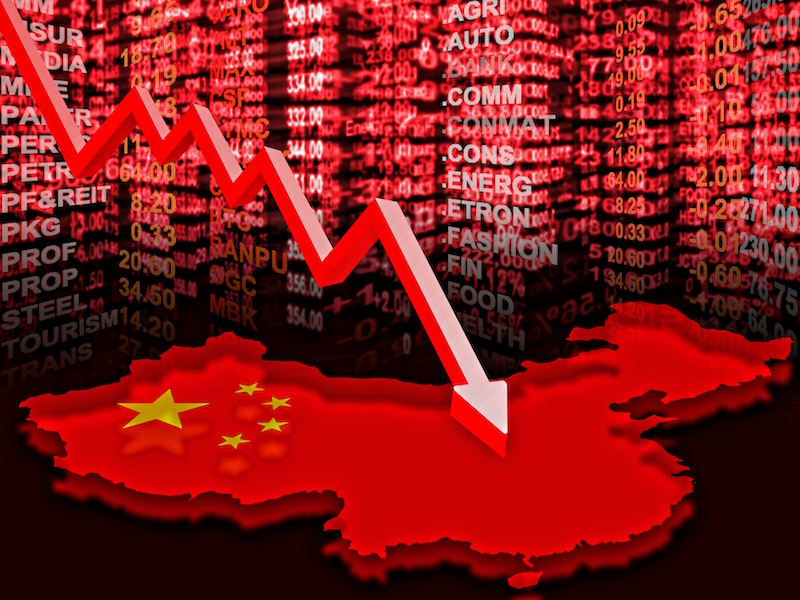Economy
China Faces Recession Threat

The People’s Republic of China and the world market are on all in cue that the said country will be in recession in the near future due to recently reported debauched credit standing and flat profit growth.
China on loan frown
China’s largest banks report that there is a large stock of rapidly lethal loans and China’s ability to absorb the potential losses from them is drastically decreasing. The Non-Performing Loan (NPL) provisions being put aside to deal with these loans cannot keep up with the rate of bad loans.
China’s banking regulators have attempted to assist the banks by lowering NPL provision coverage requirements from 200% to 150%; however this has not proved successful. Bank of China, Bank of Communications, and Industrial and Commercial Bank of China have already pushed the limit by 149%, 151%, and 141%.
The bank with the highest NPL remains to be Agricultural Bank of China, with an NPL of 180%; this fell from 367% in 2013.
If the current trends continue to increase by doubling to 4% or 5%, this could then start consuming the banks own retained earnings.
Flat Profit Sack for China
China’s growth has dried up. Currently, pre-provision operating profits for the first quarter were at 4%, and this is down from the last quarter in 2015 where they were at 8%.
When three major banks reported their 2015 results for the month of March, they revealed that they had written off a total of $21.85 billion in debts which is 1.4 times more than they did in 2014. This shows the level their customers (mainly industrial companies) have struggled with debt repayments.
The same report also shows that profits were barely flat compared with growth rates of 40% a few years ago –
- Industrial and Commercial Bank of China reported 0.5% profit growth
- China Construction Bank Corp reported only a 0.1% rise in profit
- Bank of China reported a 0.7% increase in profit
Eyeing the long term implication
The Chinese government’s failure to come up with a viable plan for economic recovery has seen to be one of the factors that led to the falling confidence of the country’s future economy.
The reduction in profits growth could force many Chinese banks to start investing in trust and wealth-management products. This could be a risky move as high yield assets, such as these, could affect liquidity if banks need to offload them.
Thus, the best outcome for China, should they decide to carry on this course, would be for them to remain in a state of long-term recession.
China for Now
The markets value the banks’ Hong Kong shares at 60-70% of book share. Nonetheless, there is hope that the economy may be showing signs of stabilizing. Although growth is slow, there were reports of 6.7% growth in the first quarter of 2016.
China’s leaders are moving away from growth based on investments and export manufacturing and more towards growth based on sustainable services and private consumption. There is hope that this will raise chances of stability.
The latest figures are in line with many economists’ predictions, and there is hope that China will reach their official full-year target of 6.5-7% growth.
China on possibility of Recession
Experts predicted back in 2015 that unless China changes its strategy, it is heading for a long-term decline or collapse. This would see China’s rank returning to that of a weaker state.
Although, if the recent reports of a possible stabilization of the economy are correct then is there still a chance that China may be able to avoid a complete recession?
[buffet_recommended]
Most economists see the recent improvements as a positive. However, they still believe that a recession or at least long-term stagnation is still the most likely outcome.
Despite signs of growth, there is still the ever increasing debt. The country, so far, has resorted to bailing out bad debt with even more bad debt. The current level of debt is unsustainable and is affecting further economic growth.
Unless China can shrink its deficit, then the rate of current growth is unlikely to prevent a recession.
Should China’s economy concern us?
China’s economy is ranked the second highest in the world, the first being the US. These rankings do not indicate the overall wealth of the country.
China has connections with the US through exports; they are our third largest export partner. Exports from China make up 5.3% of total exports into the country. Similarly, China is also our biggest import partner, accounting for 16.4% of our total imports.
This alone shows the imbalance of power between China and us. Any positive or negative activity in China is going to have an impact on the US. The slowdown of the Chinese economy is already causing concern, as this has negative impacts on markets which are closely linked to China, such as the US.













